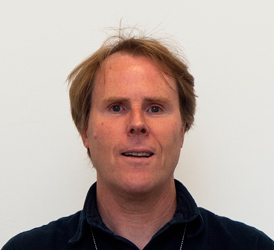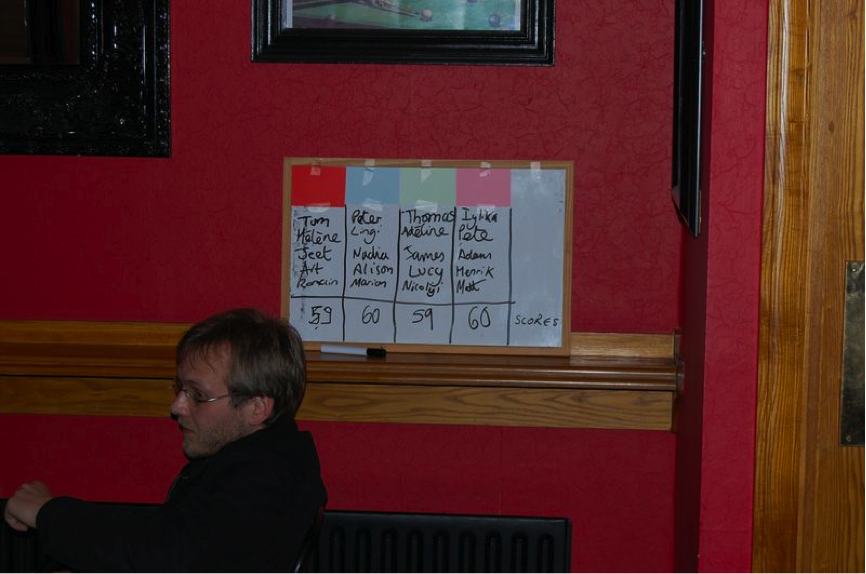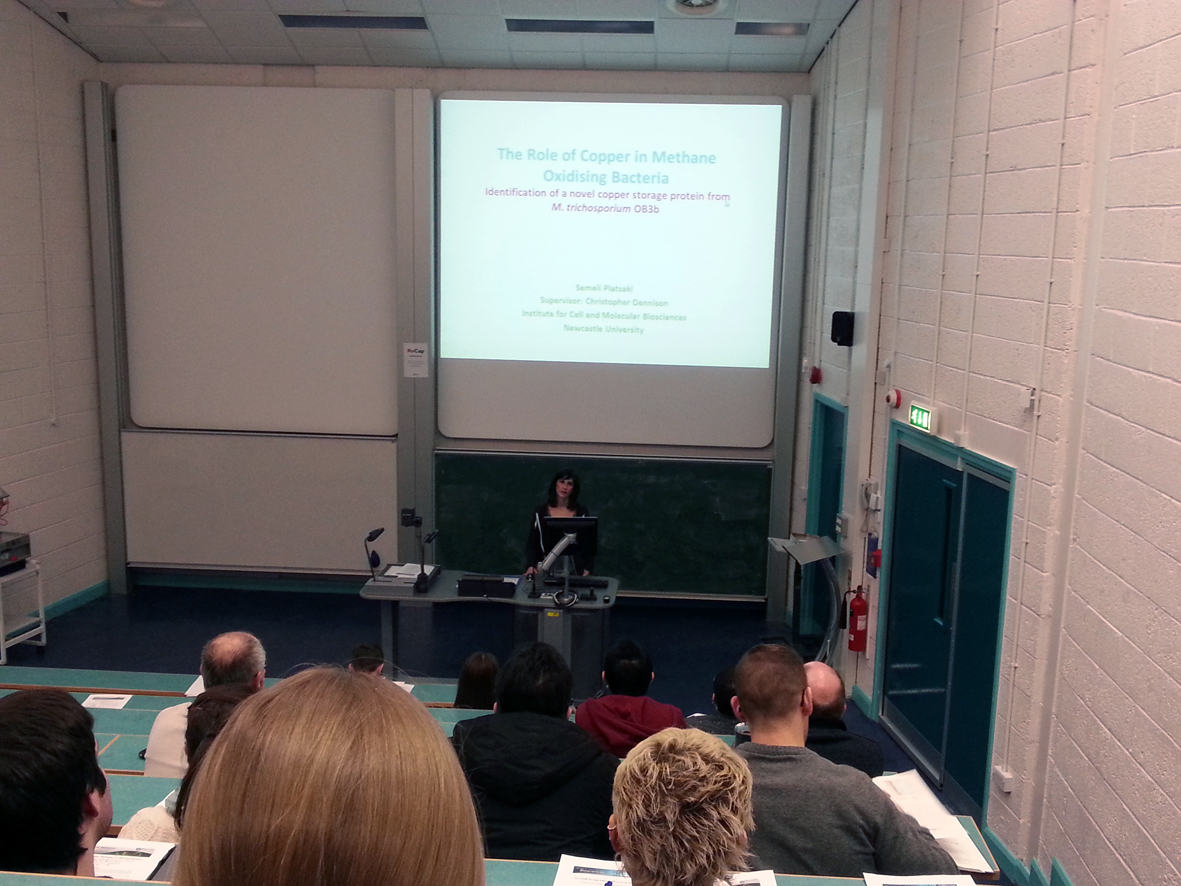April 27th saw the ICaMB postdoc association (IPA)’s second social event with a Friday Night at the North Terrace pub. Here the IPA committee describes the evening and upcoming VERY IMPORTANT EVENT
By the IPA
All those involved with the IPA social evening and pub quiz thought it was a terrific success, with a good turn out of Postdocs and final year PhD students letting off some steam after their hard week at work.

The pub quiz. Postdocs hard at work.
It was a great night and we all enjoyed the drinks and delicious North Terrace food, including generous portions of tasty potato skins and pizzas, which were very much approved of (even by Alessio). While some got serious over a game of darts, others chatted over pints – however the best part of the night was by far the PUB QUIZ.

Who is this man? One of the tough questions at the IPA pub quiz. Fortunately everyone got this one right.
The IPA committee prepared the questions with an international angle that went down well with our multi-national postdoc community. It was amusing to see the quality team-work used to answer questions on intercontinental cuisine and different languages. Particularly with the question “how does a Geordie spell the word home?”* Although the Italian Quiz Master occasionally struggled to read the questions in a ‘proper’ English accent, this just kept the postdocs on the ball! We had 4 competing teams, with every team randomly formed with different lab members, so everyone got to know and chat with new people.
Victory went to the ‘baby PINK team’ after winning the tie break question with their closest answer to “What is the length of the River Nile?”** Not easy! Their 1st place prize was North Terrace Deli sandwich vouchers. Yummy!

The result. A close run thing.
The IPA committee is looking forward to our next social; a barbecue in September! We are in the process of seeking a good venue!
Before this we have our next Science Lives Seminar with the invited Nature Microbiology senior editor Dr Andrew Jermy giving an exclusive talk to our Postdocs and final year PhDs. Get Thursday 23rd May 4pm blocked now in your busy diaries – you can’t miss  hearing about how this former postdoc established a career in editing for one of the most renowned journals in our field. We, as postdocs, need to keep our career options open, and this does not seem like a bad one! The PIs are perhaps even more excited than us about his visit, not that they are invited to the seminar (haha unlucky), but we can expect some serious sweet-talking in Andrew Jermy’s tight schedule of meetings with ICaMB academics the following day! We all know that PIs don’t have much time, but all of them have managed to rearrange their outlook calendars for this guest!
hearing about how this former postdoc established a career in editing for one of the most renowned journals in our field. We, as postdocs, need to keep our career options open, and this does not seem like a bad one! The PIs are perhaps even more excited than us about his visit, not that they are invited to the seminar (haha unlucky), but we can expect some serious sweet-talking in Andrew Jermy’s tight schedule of meetings with ICaMB academics the following day! We all know that PIs don’t have much time, but all of them have managed to rearrange their outlook calendars for this guest!
* Answer is ‘yem’
** Answer is 6,650 km (4,130 miles)
If you have any suggestions for themes for future events please get in touch with the IPA committee.
Links
IPA Facebook page: https://www.facebook.com/groups/462376430446559
Institute for Cellular and Molecular Biosciences: http://www.ncl.ac.uk/camb/
Newcastle University: http://www.ncl.ac.uk/
Nature Journal: http://www.nature.com/nature/index.html
Andrew Jermy’s twitter page: https://twitter.com/jermynation







